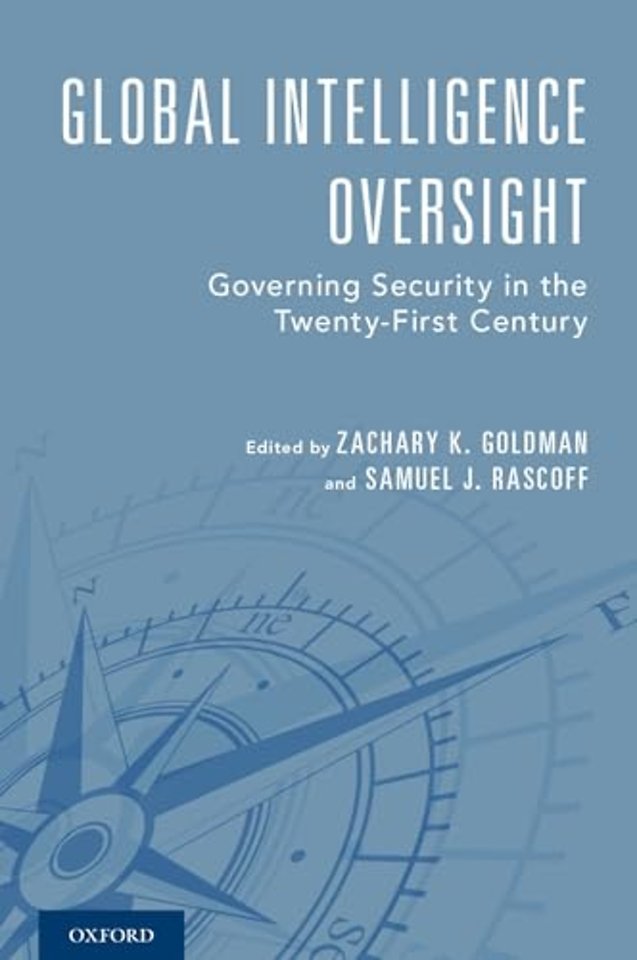Global Intelligence Oversight
Governing Security in the Twenty-First Century
Gebonden Engels 2016 1e druk 9780190458072Samenvatting
In a world that is increasingly unstable, intelligence services like the American CIA and the United Kingdom's MI6 exist to deliver security. Whether the challenge involves terrorism, cyber-security, or the renewed specter of great power conflict, intelligence agencies mitigate threats and provide decisional advantage to national leaders. But empowered intelligence services require adequate supervision and oversight, which must be about more than the narrow (if still precarious) task of ensuring the legality of covert operations and surveillance activities.
Global Intelligence Oversight is a comparative investigation of how democratic countries can govern their intelligence services so that they are effective, but operate within frameworks that are acceptable to their people in an interconnected world. The book demonstrates how the institutions that oversee intelligence agencies participate in the protection of national security while safeguarding civil liberties, balancing among competing national interests, and building public trust in inherently secret activities. It does so by analyzing the role of courts and independent oversight bodies as they operate in countries with robust constitutional frameworks and powerful intelligence services. The book also illuminates a new transnational oversight dynamic that is shaping and constraining security services in new ways. It describes how global technology companies and litigation in transnational forums constitute a new form of oversight whose contours are still undefined. As rapid changes in technology bring the world closer together, these forces will complement their more traditional counterparts in ensuring that intelligence activities remain effective, legitimate, and sustainable.
Specificaties
Lezersrecensies
Inhoudsopgave
Acknowledgments
Preface—Why Intelligence Oversight Matters
By The Honorable Jane Harman
Introduction
By Zachary K. Goldman & Samuel J. Rascoff
Part I: Transnational Oversight
Chapter 1: Intelligence Services, Peer Constraints, and the Law
By Ashley Deeks
Chapter 2: Oversight Through Five Eyes: Institutional Convergence and the Structure and Oversight of Intelligence Activities
By Richard Morgan
Chapter 3: Oversight of Intelligence Agencies: The European Dimension
By Iain Cameron
Chapter 4: Global Change and Megatrends: Implications for Intelligence and its Oversight
By Christopher A. Kojm
Part II: The Role of the Courts in Intelligence Oversight
Chapter 5: The FISC's Stealth Administrative Law
By Daphna Renan
Chapter 6: In Law We Trust: The Israeli Case of Overseeing Intelligence
By Raphael Bitton
Chapter 7: Review and Oversight of Intelligence in Canada: Expanding Accountability Gaps
By Kent Roach
Part III: Executive Branch and Independent Oversight Institutions
Chapter 8: The Emergence of Intelligence Governance
By Zachary K. Goldman
Chapter 9: Presidential Intelligence
By Samuel J. Rascoff
Chapter 10: Intelligence Oversight: Made in Germany
By Russell A. Miller
Chapter 11: Intelligence Powers and Accountability in the UK
By Jon Moran & Clive Walker
Chapter 12: Executive Oversight of Intelligence Services in Australia
By Keiran Hardy & George Williams
Index
Anderen die dit boek kochten, kochten ook
Rubrieken
- advisering
- algemeen management
- coaching en trainen
- communicatie en media
- economie
- financieel management
- inkoop en logistiek
- internet en social media
- it-management / ict
- juridisch
- leiderschap
- marketing
- mens en maatschappij
- non-profit
- ondernemen
- organisatiekunde
- personal finance
- personeelsmanagement
- persoonlijke effectiviteit
- projectmanagement
- psychologie
- reclame en verkoop
- strategisch management
- verandermanagement
- werk en loopbaan







